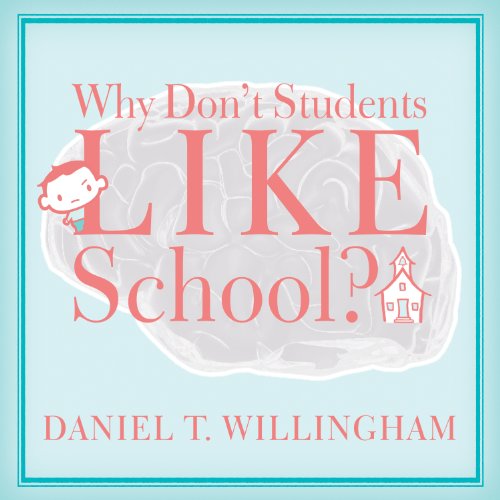
Why Don't Students Like School?
A Cognitive Scientist Answers Questions About How the Mind Works and What It Means for the Classroom
Failed to add items
Add to basket failed.
Add to wishlist failed.
Remove from wishlist failed.
Adding to library failed
Follow podcast failed
Unfollow podcast failed
Buy Now for £17.99
No valid payment method on file.
We are sorry. We are not allowed to sell this product with the selected payment method
-
Narrated by:
-
Paul Costanzo
About this listen
Kids are naturally curious, but when it comes to school it seems like their minds are turned off. Why is it that they can remember the smallest details from their favorite television programs, yet miss the most obvious questions on their history test? Cognitive scientist Dan Willingham has focused his acclaimed research on the biological and cognitive basis of learning and has a deep understanding of the daily challenges faced by classroom teachers. This book will help teachers improve their practice by explaining how they and their students think and learn - revealing the importance of story, emotion, memory, context, and routine in building knowledge and creating lasting learning experiences.
In this breakthrough book, Willingham has distilled his knowledge of cognitive science into a set of nine principles that are easy to understand and have clear applications for the classroom. Some examples of his surprising findings are:
- "Learning styles" don't exist. The processes by which different children think and learn are more similar than different.
- Intelligence is malleable. Intelligence contributes to school performance and children do differ, but intelligence can be increased through sustained hard work.
You cannot develop "thinking skills" in the absence of facts. We encourage students to think critically, not just memorize facts. However, thinking skills depend on factual knowledge for their operation. Why Don't Students Like School is a basic primer for every teacher who wants to know how their brains and their students' brains work and how that knowledge can help them hone their teaching skills.
PLEASE NOTE: When you purchase this title, the accompanying reference material will be available in your My Library section along with the audio.
©2009 Daniel T. Willingham (P)2011 TantorCritic reviews
quite useful.
enjoyed it it it it it it it it it it.
useful, common sense stuff
Something went wrong. Please try again in a few minutes.
Should be mandatory for all teachers.
Something went wrong. Please try again in a few minutes.
Outstanding book; monotonous narration.
Something went wrong. Please try again in a few minutes.
Good book
Something went wrong. Please try again in a few minutes.
A great challenge to hyped up learning trends
Something went wrong. Please try again in a few minutes.
Must read for all teachers.
Something went wrong. Please try again in a few minutes.
Great Book
Something went wrong. Please try again in a few minutes.
Informative
Something went wrong. Please try again in a few minutes.
Not really suitable for listening
Something went wrong. Please try again in a few minutes.
dissappointing narration, very robotic
Something went wrong. Please try again in a few minutes.


















